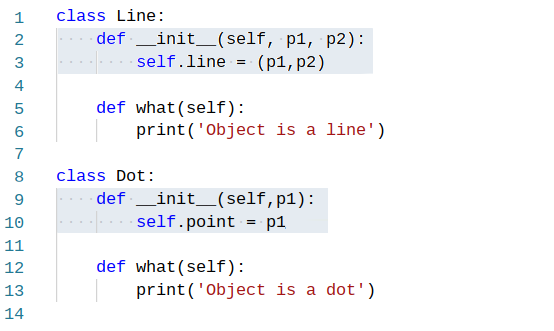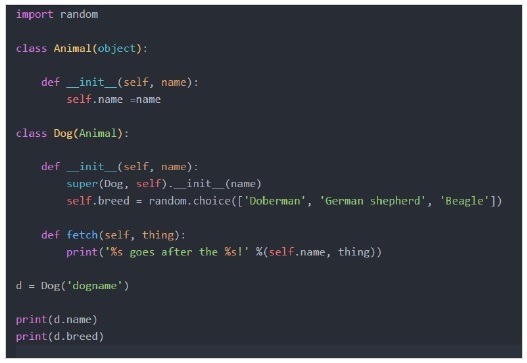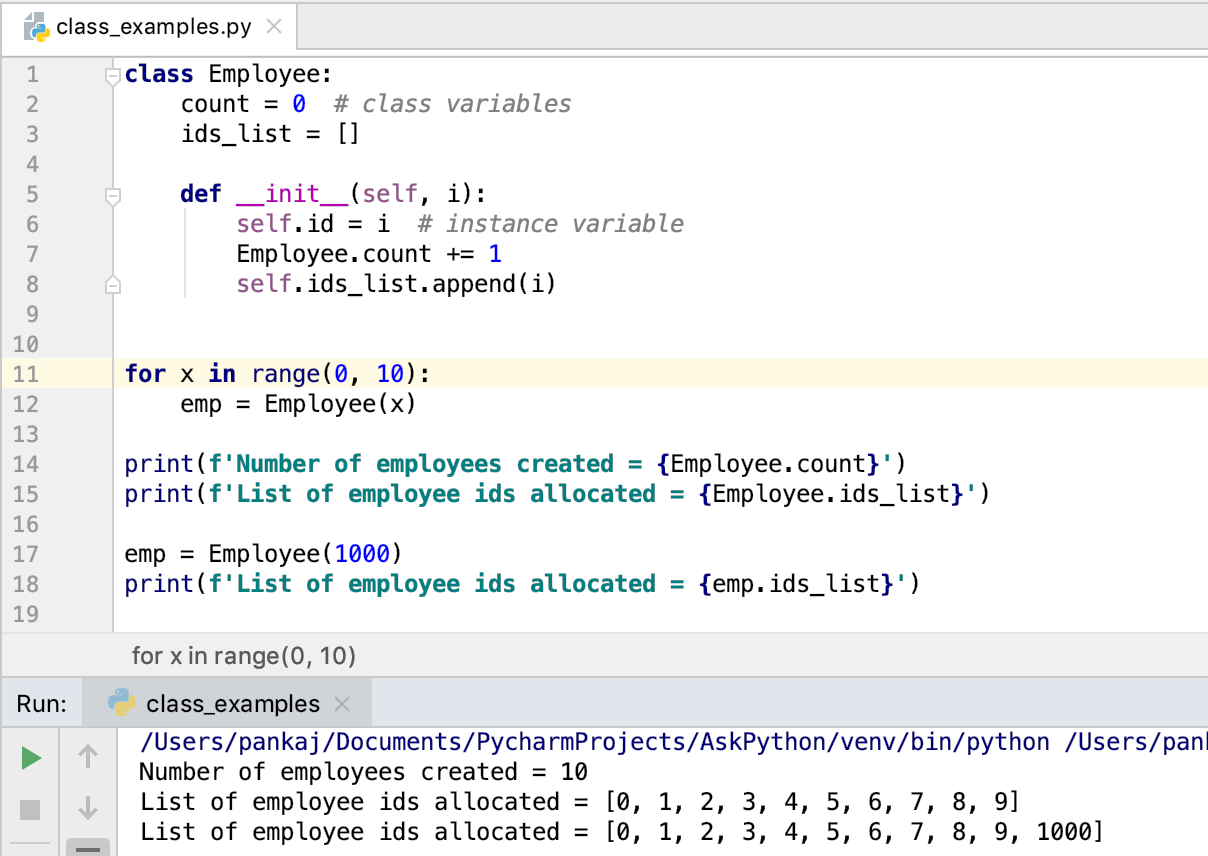python class constructor return value
The default value will be considered if no values are passed for these optional arguments. Its called first and is responsible for returning a new instance of your class.
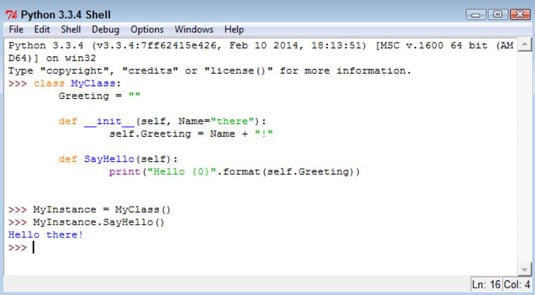
How To Create A Constructor In Python Dummies
Selfvaluew selfunitd def __str__self.

. Python class constructor example. And it is not a method its sole purpose is to initialize the instance variables. To run the first step Python classes have a special method called __new__ which is responsible for creating and returning a new empty object.
The Constructor is a block of code that is used to initialize the instance variables within the class. Return selfnum_enemies def getLivesself. I see you meant how to make objects compare.
The following code shows how to get return value from a function in a Python class. Defining a class. Attributes are always public and can be accessed using the dot operator.
And if you want to stick with threads rather than processes you can just use the multiprocessingpoolThreadPool class as a drop-in replacement. Syntax of constructor declaration. If the value isnt the object thats been created the.
There are no restrictions on the return value of abs. The first argument refers to the current object. It is important to note that everything in Python is an object including classes.
Def __init__ self name. Body of the constructor. Selfname name obj Human Bob print objname Output.
Print hello 0formatbar return foo baz from multiprocessingpool import ThreadPool pool. It binds the instance to the init method. Return selfbaz - obj2baz Multiplying two objects def __mul__self obj2.
Its usually named self to follow the naming convention. Return selfbaz obj2baz Subtracting two objects def __sub__self obj2. Then it sets any required instance.
Selfbaz baz Adding two objects def __add__self obj2. FWIW the multiprocessing module has a nice interface for this using the Pool class. If you meant that print MyClass will print a list just override __repr__.
Some points on Python class. No constructor does not return any value. However we can also use a parameterized constructor to initialize the data members with a customized value within a class.
Its a message you send to a class which is itself an object. To continue with the. Taskpane class to hold all catalog taskpanes private variables _tp_nr _tp_title _tp_component_name Static list for class instantiations _instances Constructor def __init__ self nr title component_name.
Selfscore num def getScoreself. Do comment if you have any doubts and suggestions on this Python constructor topic. Create a new instance of the target class.
In Smalltalk new isnt a keyword. Since Python doesnt have anything as such class methods and static methods are used. In Python the class name provides what other languages such as C and Java call the class constructorCalling a class like you did with Person triggers Pythons class instantiation process which internally runs in two steps.
Return selfscore def getEnemiesself. This is the code. Return selfbaz obj2baz Get the.
So in Smalltalk the constructor has to return a value or object creation wont happen. Selfy Zselfz printPoint1 2 Object 1 printPoint54 92 0 Object 2 printPoint99 26 100. Return PythonGeeks geek PythonGeeks.
The default constructor in a class is invoked at the time of object creation. Example of Python Return Statement class PythonGeeks. In Python the __init__ method is called the constructor and is always called when an object is created.
Return strmy speed is strselfvalue strselfunit obSolve21kmh print. How to return string from the parameterized constructor in Python. The task of constructors is to initializeassign values to the data members of the class when an object of the class is created.
Selfvalue1 1 selfvalue2 2 def __repr__ self. The id function is used to find the identity of the location of the object in memory. Since returning only None is useless we never use a return statement in the constructor in Python.
Return value from constructor. If you want to return something other than the class instance while creating an instance of a class use pythons __new__ method. The __init__ method takes the new object as its first argument self.
Objects as Return Values in Python Constructor Method. Initialize the instance with suitable instance attribute values. Factory methods are those methods that return a class object like constructor for different use cases.
Then another special method __init__ takes the resulting object along with the class constructors arguments. Selfscore 0 selfnum_enemies 5 selfnum_lives 3 def setScoreself num. The classs new method creates an object and returns it.
To following Python code depicts the concept discussed above. Therefore while declaring a constructor we dont have anything like return type. Thus it has the sole purpose of initializing the instance variables.
It is similar to function overloading in C. Selfx x selfy y selfz z def __str__self. PyCharm 20213 Community Edition.
Import weakref class Taskpane. Return selfnum_lives s. Def __init__self x y z 0.
Anything that can be used as a value int str float functions modules etc is implemented as an object. For that you override the __cmp__ method. Its only responsible for initializing.
Python expects the constructor to return None and fails if it returns anything else. In general Constructor is implicitly called at the time of instantiation. Types of constructors.
__new__ is the first step of instance creation. Therefore the constructors in Java are. Instead a constructor is implicitly called at the time of object instantiation.
When you pass an instance of some class to a built-in function or use an operator on the instance it is actually equivalent to calling a special method with relevant arguments. Every class in Python defines its own behavior for built-in functions and methods. Return repr selfvalue1 selfvalue2 EDIT.
While declaring a constructor you will not have anything like return type. The following code returns the correct values but it gets return in a strange format. Attributes are the variables that belong to a class.
Def __init__ self arguments The def keyword is used to define it because its a function. The __init__ function syntax is. In Python the constructor does not return any value.
Classes are created by keyword class. In contrast __init__ doesnt return anything. Return selfbaz obj2baz Dividing two objects def __truediv__self obj2.
Constructor Return Value.
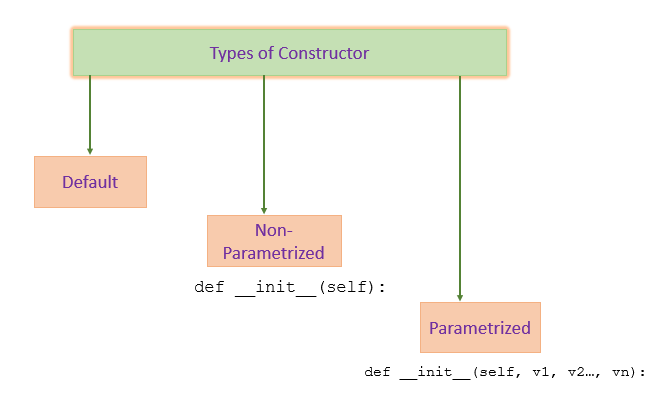
Constructor In Python Guide Pynative
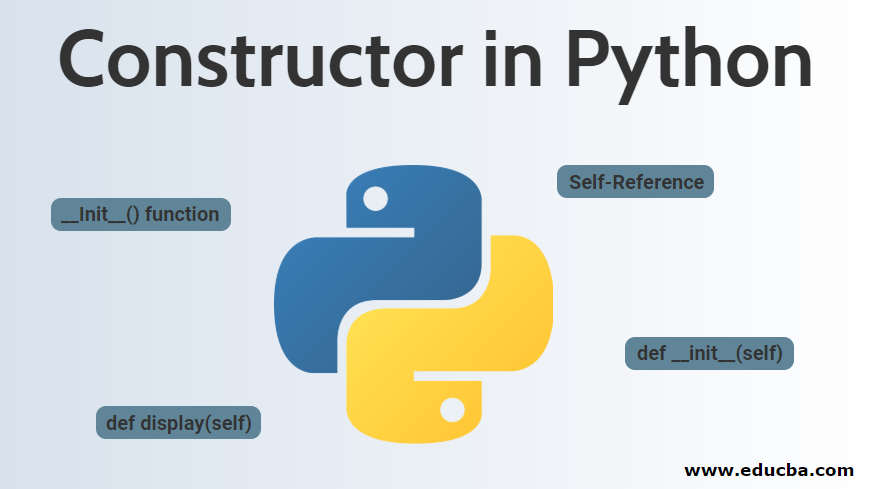
Constructor In Python Working Of Python Constructor Wih Sample Code
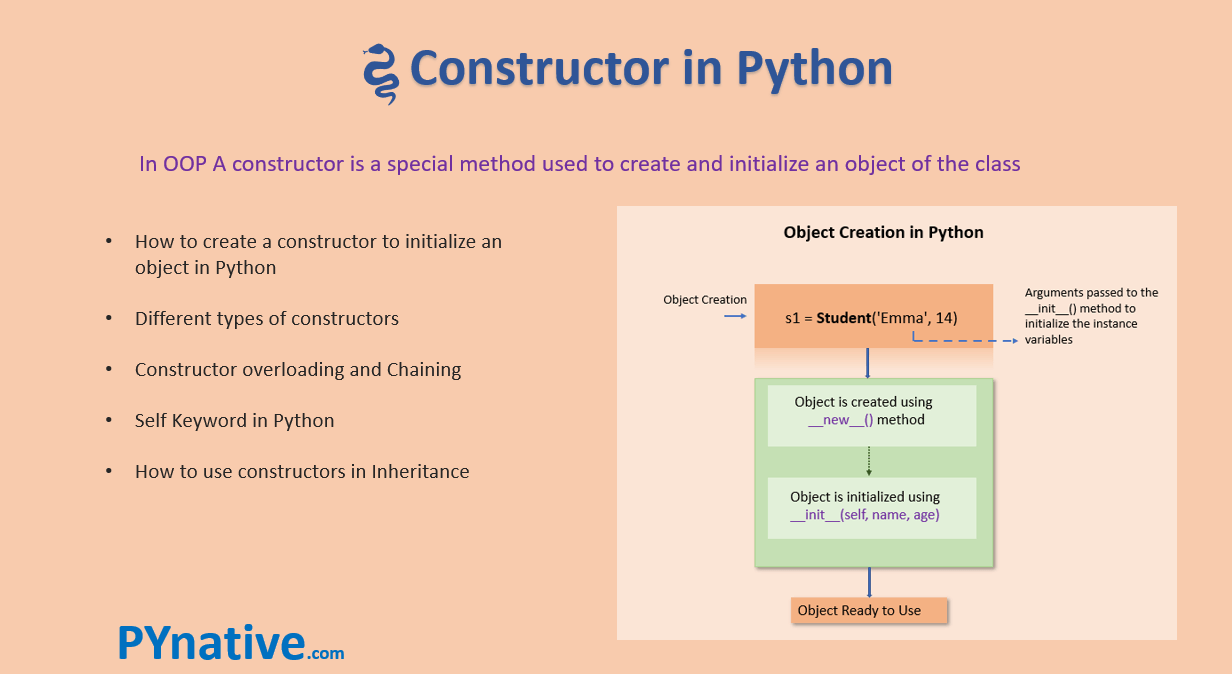
Constructor In Python Guide Pynative

Constructor In Python Python Guides

Constructor In Python Python Guides

Constructor In Python Python Guides

Python Class Definition Code Example

Init Python Is Init In Python A Constructor Python Pool

Python Constructors Decodejava Com
Difference Between Constructor And Method Difference Between

When Is An Object Initialized In A Python Constructor Expression Stack Overflow
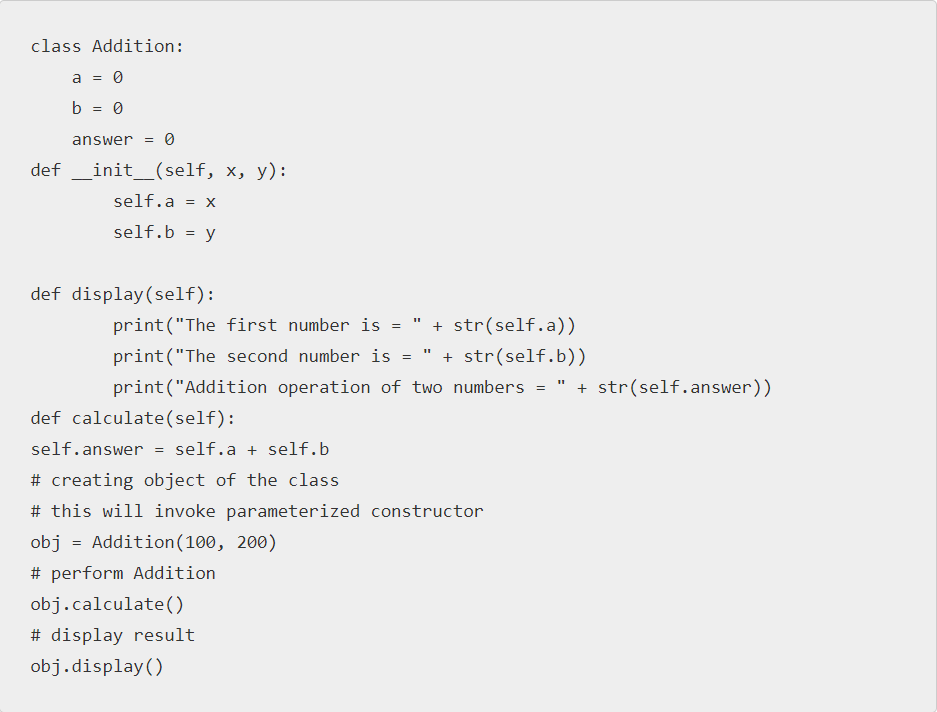
Python Class Constructor Default Parameterized Developer Helps

Init Python Is Init In Python A Constructor Python Pool
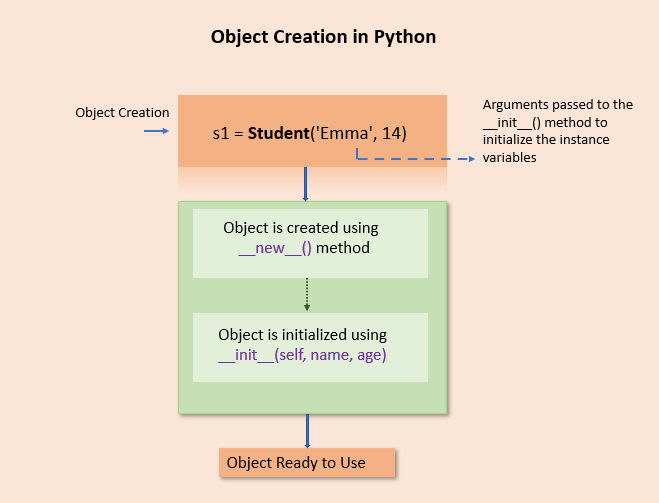
Constructor In Python Guide Pynative
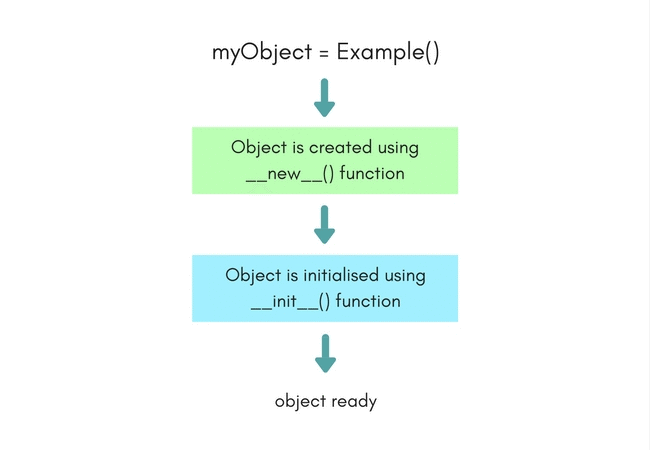
Python Constructors Studytonight

Analysis Of Init Instance Method Of Python Constructor Develop Paper
